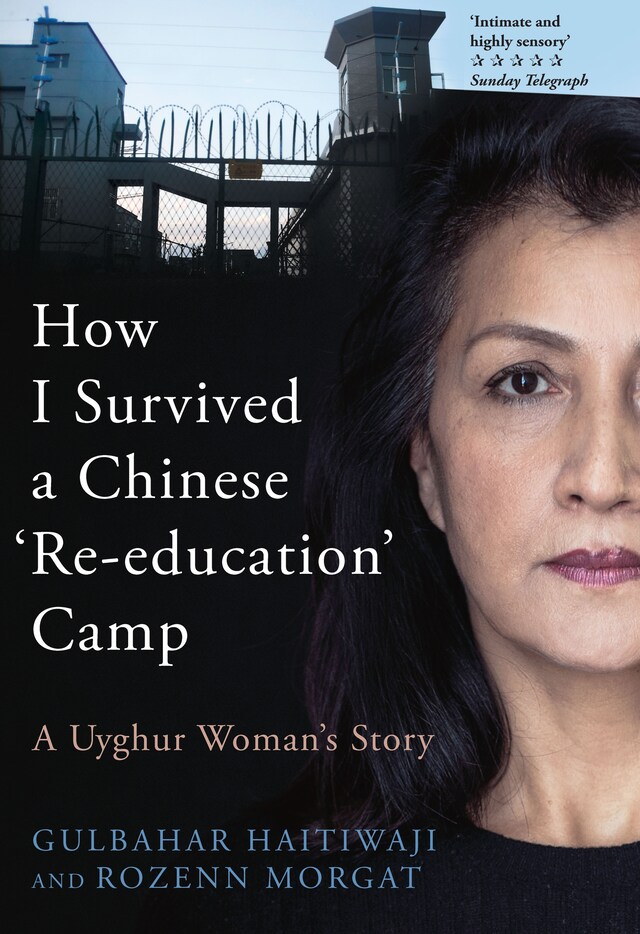
How I Survived A Chinese 'Re-education' Camp
A Uyghur Woman's Story
Om bogen
'An indispensable account' –
Sunday Times
'Moving and devastating' –
The Literary Review
'An intimate, highly sensory self-portrait' –
Sunday Telegraph (Five Stars)
FIRST MEMOIR ABOUT CHINA'A 'RE-EDUCATION' CAMPS BY A UYGHUR WOMAN
Since 2017, one million Uyghurs have been seized by the Chinese authorities and sent to 're-education' camps, in what the US Government and human rights groups describe as a genocide.
Few have made it out to the West. One is Gulbahar Haitiwaji.
For three years, she endured hundreds of hours of interrogations, freezing cold, forced sterilisation, and a programme of de-personalisation meant to destroy her free will and her memories.
This intimate account reveals the long-suppressed truth about China's gulag. It tells the story of a woman confronted by an all-powerful state bent on crushing her spirit – and her battle for freedom and dignity.
Extract
'In the camps, the 're-education' process applies the same remorseless method to destroying all its victims. It starts out by stripping you of your individuality. It takes away your name, your clothes, your hair. There is nothing now to distinguish you from anyone else.
'Then the process takes over your body by subjecting it to a hellish routine: being forced to repeatedly recite the glories of the Communist Party for eleven hours a day in a windowless classroom. Falter, and you are punished. So you keep on saying the same things over and over again until you can't feel, can't think anymore. You lose all sense of time. First the hours, then the days.'
- Gulbahar Haitiwaji
Reviews
'Gulbahar's memoir is an indispensable account, which makes vivid the stench of fearful sweat in the cells, the newly built prison's permanent reek of white pain. It closely corresponds with other witness statements, giving every indication of being very reliable. Most impressive is her psychological honesty.' –
John Phipps, Sunday Times
'Huge efforts have been made to obfuscate the realities of life in the camps (even speaking openly in Xinjiang about them can lead to incarceration). Although their existence has been well documented abroad and grudgingly admitted by the Chinese state, relatively few first-hand accounts of what actually goes on inside them have emerged. One is Gulbahar Haitiwaji's moving and devastating How I Survived a Chinese 'Re-education' Camp.' –
Roderic Wye, Literary Review
'There follows an intimate, highly sensory self-portrait, created with the help of Rozenn Morgat (a journalist with Le Figaro), of an educated woman passing through a system that appears at turns cruel, paranoid, capricious and devastatingly effective. It begins with the confiscation of Haitiwaji's passport and a police interrogation during which she is shown a photograph of her daughter attending a Uyghur demonstration in Paris. One of the interrogators starts bawling at her - "Your daughter's a terrorist!" and before long Haitiwaji is plunged into a bewildering world of shackles, bunks and beaten-earth floors; grey gruel and stale bread served up by deaf-mute cooks selected for their silence; the sounds and smells of the communal toilet-bucket; and the buzz of security camera motors as they scan the cell.' ***** –
Christopher Harding, Sunday Telegraph
Translated from the French book Rescapée du goulag chinois (Équateurs), How I Survived a Chinese Reeducation Camp is a riveting insight into an authoritarian world.
A true story, it reads like a 21st Century version of George Orwell's 1984 set in modern China.
 208 Sider
208 Sider